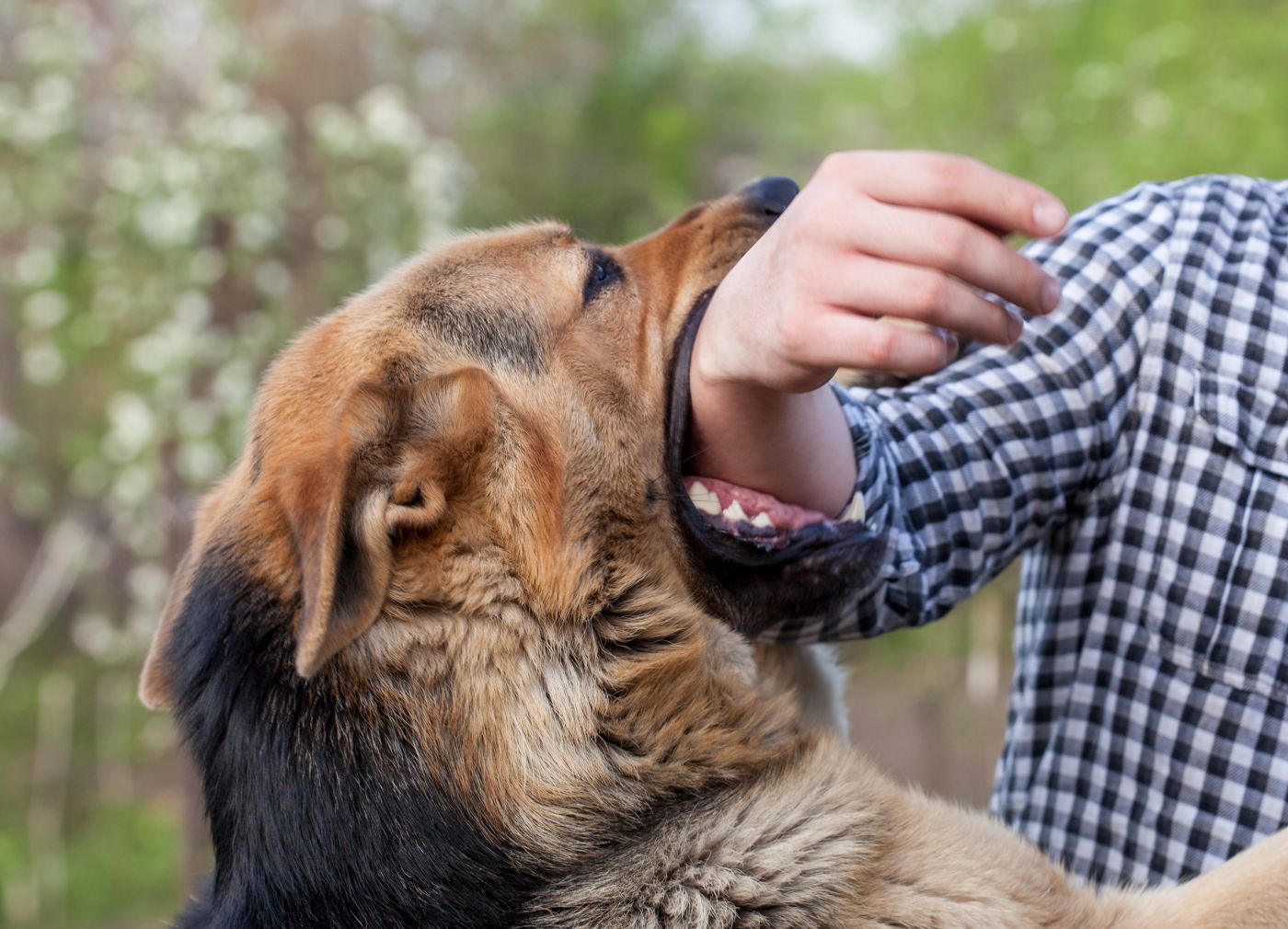
Suffering from a dog bite can be a traumatic experience, and understanding your legal rights is crucial. At Harrell & Paulson with locations in Heath and Kaufman, Texas, the firm’s personal injury attorneys are dedicated to helping you understand the timeline for filing a personal injury claim.
Many individuals may not know how long they have to take legal action after being bitten by a dog, which is why it's important to seek professional guidance as soon as possible. The timeline can vary depending on your location and the circumstances surrounding the injury. One of the most important factors is the statute of limitations, which sets the deadline for filing a lawsuit.
This makes it critical to understand the statute of limitations and take timely action. With that in mind, let's look at what the statute of limitations means for your case and when you should start the legal process.
Statute of Limitations and Its Impact on Dog Bite Claims
The statute of limitations dictates how much time you have to file a personal injury claim after a dog bite. While the exact time limit depends on your state, it usually ranges from one to three years. Understanding the specific timeframes for your state is crucial to make sure that you don't miss the deadline.
However, there are exceptions that may extend the deadline. For example, in some cases, the clock may not start until you discover the full extent of your injuries. If you were unaware of complications like infections until later, the discovery rule may apply, giving you more time to file your claim.
Some key factors to keep in mind include:
State-specific rules: Each state has different rules regarding the statute of limitations. It’s important to check your state's laws for precise details.
Discovery rule: In cases where complications appear after the bite, the time limit may not start until the injury is fully recognized.
Tolling: If the injured person is incapacitated or a minor, the statute of limitations may be paused until they’re capable of taking legal action.
Being mindful of these aspects assures you don't miss critical deadlines and can file your claim within the allowed time.
The Statute of Limitations Timeline
Typically, the statute of limitations starts from the date the dog bite occurred. However, the clock can sometimes start later, depending on when the injury becomes apparent. For example, if you were initially unaware of an infection from the bite, the statute of limitations could be extended based on when you discover this complication.
If you’ve suffered from an injury that became apparent later, it’s essential to speak with an attorney as soon as possible. They’ll help you determine when your specific statute of limitations began and whether you have additional time to file a claim. This leads us to the next important step, which is understanding how insurance can play a role in your claim.
Using Insurance for Dog Bite Claims
In many dog bite cases, the dog owner’s insurance may cover medical costs and other damages related to the incident. Homeowner’s insurance or renter’s insurance policies typically include liability coverage for dog bites, depending on the circumstances. While insurance can be helpful, there may still be limitations, and it may not be sufficient to cover all your expenses.
If the dog owner’s insurance company offers a settlement, it might not fully cover all your costs. This is why some victims pursue legal action in addition to or instead of an insurance claim. Taking this route may help you secure the full amount of compensation you’re entitled to.
Some key factors to keep in mind include:
Coverage limits: Insurance policies have limits on how much they’ll pay out. You may need to pursue further legal action if your damages exceed this amount.
Insurance disputes: In some cases, the dog owner’s insurer may deny or offer an insufficient settlement. If this happens, legal action may be necessary.
Third-party involvement: If other parties are involved in the incident, such as a property owner or a dog walker, you may be able to pursue claims against them as well.
Understanding how insurance affects your dog bite claim can help you decide whether to pursue insurance coverage, file a lawsuit, or both.
Medical Records and Documentation
One of the most important pieces of evidence in a personal injury claim is your medical records. After a dog bite, it’s crucial to seek immediate medical treatment to assess the injury and prevent complications. Medical records provide key evidence to show the extent of the injury and the necessary treatments you received.
Even if the bite doesn’t seem severe initially, you should still see a doctor. Some issues, such as infections, can develop later and may not be immediately visible. Having a comprehensive medical record will help support your claim, especially if complications arise later.
This highlights the importance of gathering all relevant evidence, including physical evidence of the bite and witness statements.
Gathering Evidence After a Dog Bite
To strengthen your personal injury claim, collecting evidence from the scene of the incident is essential. Photographs of the injury and the surrounding area, as well as contact information for witnesses, can help corroborate your account of the event. The more detailed and thorough your evidence, the better your chances of success.
Documenting any communications with the dog owner or their insurance company is also important. If the dog owner admits fault or makes statements that could support your claim, having a record of these interactions will be beneficial.
Some key factors to keep in mind include:
Photographs: Take clear and detailed photos of your injuries and the area where the bite occurred.
Witness statements: If there were witnesses to the attack, gather their contact information and ask them to provide statements.
Document communications: Save all communications with the dog owner and their insurance company, as these may be useful in negotiations or court.
Collecting all necessary evidence as soon as possible helps build a strong case for compensation.
What to Do if the Dog Owner is Unknown
In some cases, the dog that bit you may be unidentified, making it harder to pursue a claim. If this happens, you can still pursue a personal injury claim through different legal avenues. One option is to file a claim under a "John Doe" legal action, where the dog owner remains unknown but the claim proceeds against an unnamed party.
Alternatively, if you have homeowner’s or renter’s insurance, you may be able to file a claim through your own policy, which may help cover your medical expenses and other costs. This leads to another critical aspect of your case: how breed-specific laws can influence your claim.
Breed-Specific Laws and Liability
Some states have breed-specific legislation (BSL) that holds owners of certain breeds of dogs more accountable if the dog attacks someone. For example, breeds like pit bulls and Rottweilers may be subject to stricter liability rules under these laws. Understanding how BSL impacts your case is essential in determining who is liable and what compensation you might be entitled to.
Some key factors to keep in mind include:
Breed-specific liability: Certain breeds may face higher liability due to the dog’s potential for aggression.
State laws: BSL laws vary by state, and their application can influence your claim’s outcome.
Owner responsibility: BSL laws often place more responsibility on dog owners to prevent attacks by specific breeds.
Knowing how these laws affect your case can improve your chances of securing compensation.
Determining Damages in Dog Bite Cases
When you file a personal injury claim after a dog bite, determining the right amount of damages is crucial. Your damages may include medical expenses, lost wages, pain and suffering, and other types of compensation. In some cases, punitive damages may apply if the dog owner was particularly negligent.
The more evidence you have of your injuries, the stronger your case will be for receiving appropriate compensation. An attorney will help calculate your damages and advise you on the best course of action.
Take Action Quickly to Protect Your Rights
If you’ve been injured in a dog attack, taking prompt action is key to protecting your rights. Our experienced personal injury attorneys serve Texas residents throughout Forney, Terrell, Rockwall, and any nearby communities. If you’ve been bitten by a dog, contact Harrell & Paulson today for a consultation and to begin building your case.



